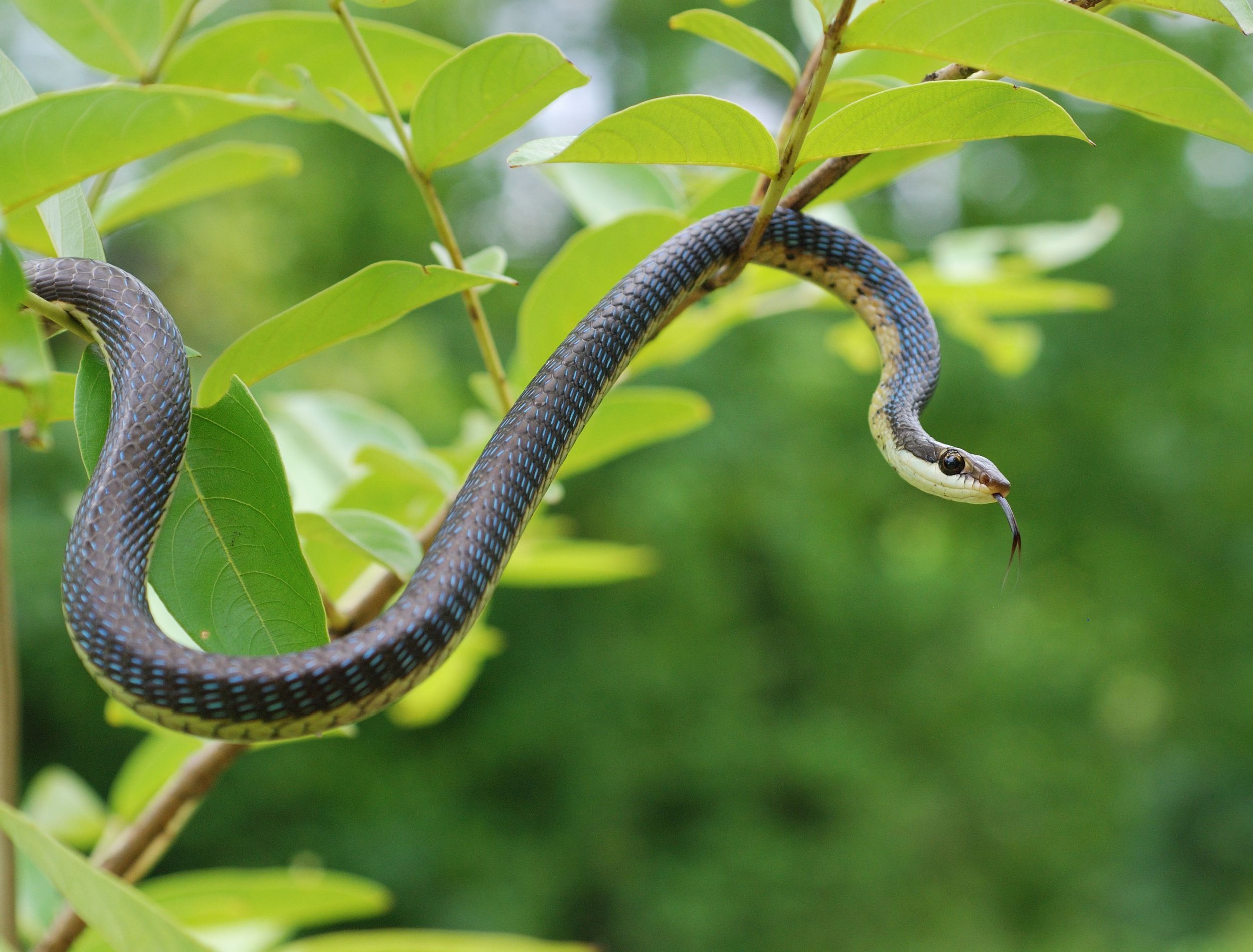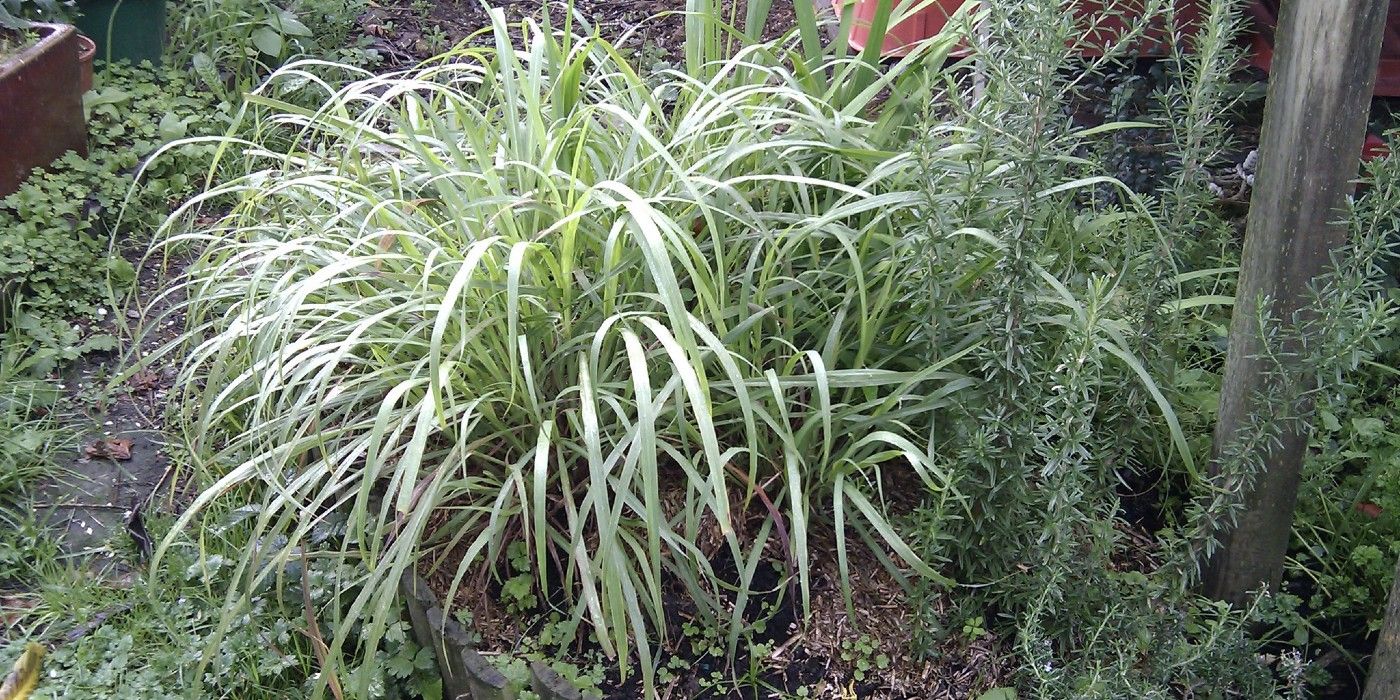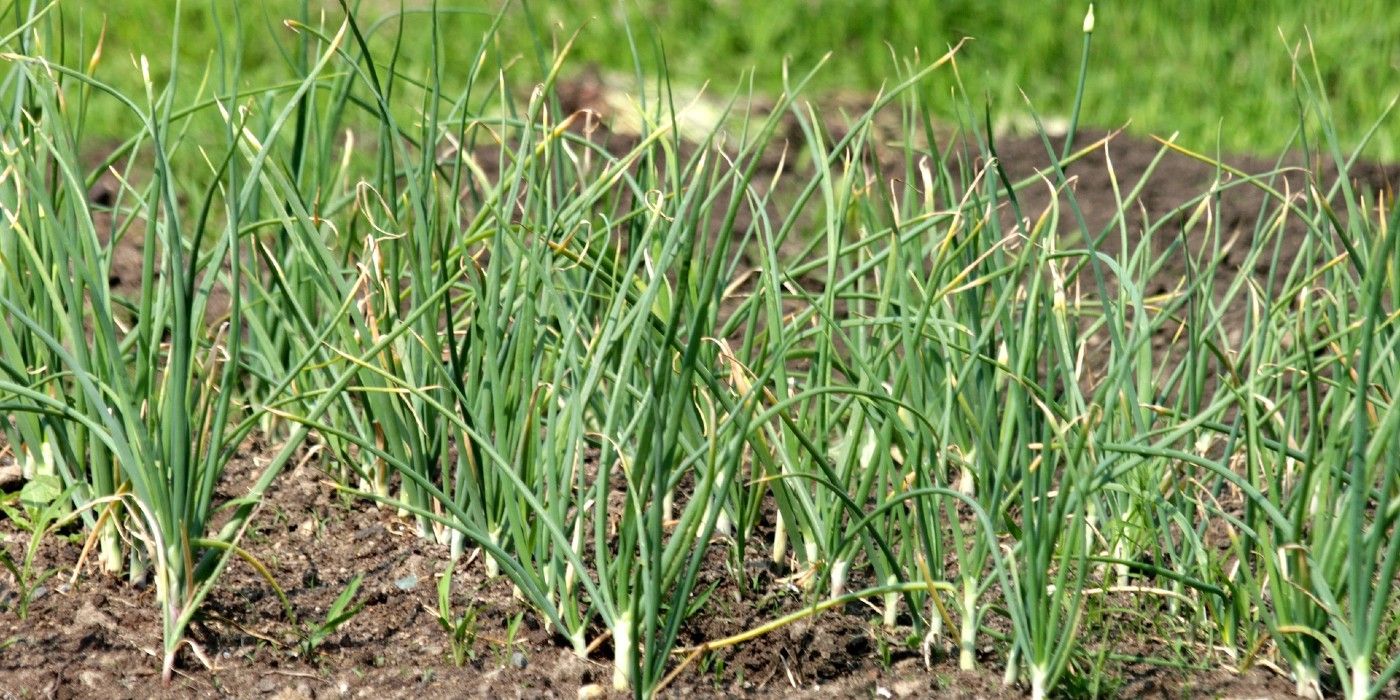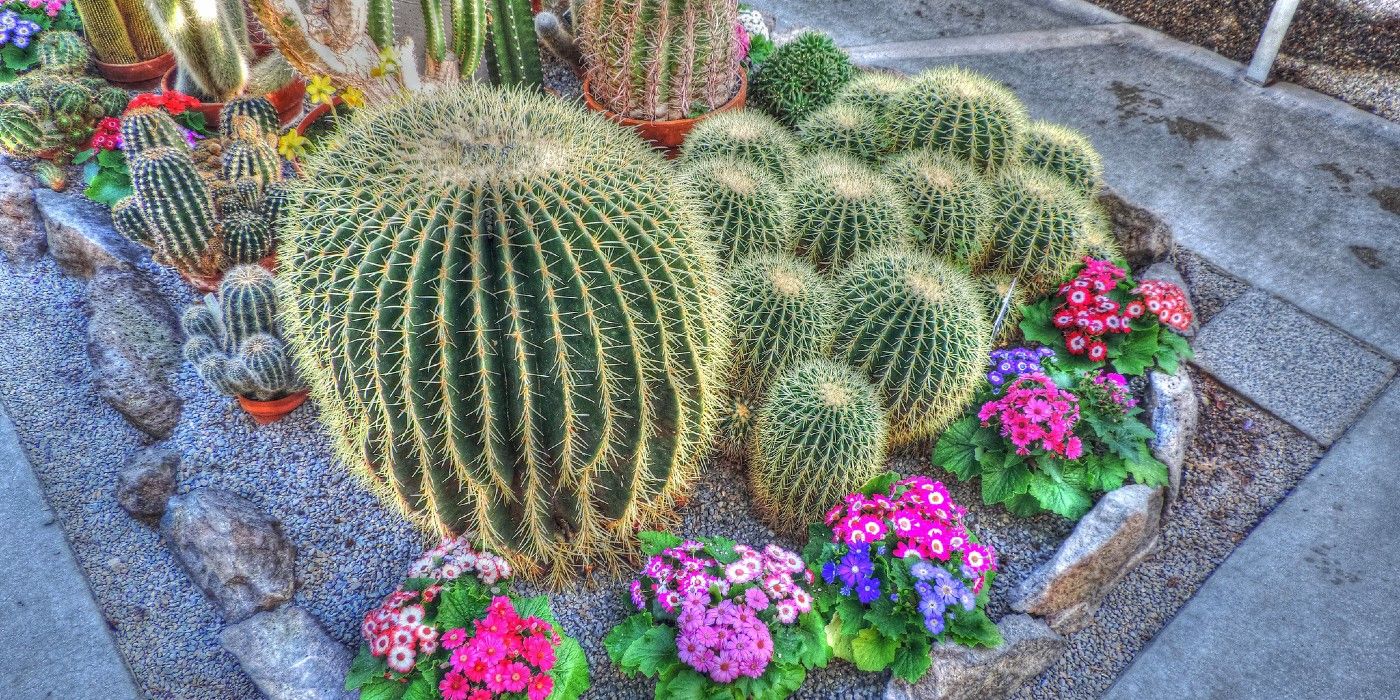Key Takeaways
- Use plants like marigolds, lemongrass, onions, mother-in-law's tongue, and garlic to naturally repel snakes from your yard and garden. These plants emit fragrances and odors that snakes find unpleasant and will avoid.
- Plant these snake-repellent plants around the perimeter of your yard or in areas where snakes are likely to enter, such as near bushes, woodpiles, or rock formations. You can also grow them in pots and move them as needed.
- Barrel cacti are prickly plants that act as a natural barrier against snakes. Plant them along the edges of your home, outdoor buildings, and gardens to prevent snakes from reaching unwanted areas.
Snakes are fascinating and gorgeous creatures, yet they're often unwelcome guests in your yard. If you live in an area with a high snake population you've probably wondered how to keep snakes away. If you want to know how to get rid of snakes — or want to take precautions to prevent them from appearing — natural repellents are the safest solution.
Unlike chemical repellents that can harm the environment and pose a risk to pets and children, using plants to repel snakes is an eco-friendly and non-toxic option to keep slithering pests out of your garden. Not only do these plants keep snakes away, but they also add beauty, fragrance, and food to your garden.
Discover some of the best plants that repel snakes from your yard and learn how to implement them in your landscape.
1 Marigold Roots Repel Snakes
A thick root system and pungent odor keep snakes out
|
Growing Zone |
Sunlight Requirements |
|---|---|
|
Zones 2 to 11 |
Six hours of full sun |
Marigolds are a popular garden plant due to their stunning colors, including orange, yellow, and red. They are also known for their bright blooms, and you can use them in many different types of gardens, including vegetable gardens, flower beds, and container gardens.
- Marigolds repel snakes by diffusing a smell that snakes detest. This strong fragrance is produced by the plant's root system, creating a barrier that these pests are reluctant to cross.
- According to the University of Florida, the roots of marigolds produce a chemical known as alpha-terthienyl which is fantastic at preventing nematodes as well as repelling snakes.
To use marigolds as a natural snake repellent in your garden, plant them around the perimeter of your yard or in areas where they are likely to enter, such as near bushes, woodpiles, or rock formations. You can also plant marigolds in pots and move them where needed.
2 Citrusy Lemongrass Wards Off Snakes
The strong citrus scent of lemongrass makes it an effective garden pest repellent
|
Growing Zone |
Sunlight Requirements |
|---|---|
|
Hardy as a perennial in zones 9 to 10 |
Six hours of full sun |
Lemongrass is a tropical plant widely used in cooking, especially in Asian cuisine. It is a tall, perennial, grass-like plant with long blue-green leaves that turn red in the fall.
- Although planting tall lemongrass where snakes can hide seems counterintuitive, lemongrass contains a natural essential oil that repels pests — including snakes.
- When crushed or broken, it releases this essential oil into the air, creating a citrus scent that acts as a natural snake repellant.
Plant it in areas where snakes might enter your home, such as near doorways, windows, or other openings. You can also grow lemongrass in pots or containers and place them around your yard to create a barrier that snakes won't traverse.
3 Repel Snakes With Onions
Strong onion odor causes snakes to slither off
|
Growing Zone |
Sunlight Requirements |
|---|---|
|
Six hours of full sun |
Onions are a staple in many kitchens, prized for their flavor and health benefits. They're easy to grow and can be a valuable addition to your garden. They have long, thin leaves that grow from bulbous roots and come in a variety of types, colors, and sizes.
If you're wondering how to keep snakes out of your yard, consider planting onions.
- Onions release a strong odor that snakes find unpleasant and will avoid.
- The scent of onions also makes them feel disoriented and confused.
Plant onions in rows around the perimeter of your yard or garden bed. Even place them near the base of trees or around outdoor structures like sheds or playhouses.
4 Mother-in-Law’s Tongue Scares Off Snakes
Give snakes a tongue lashing with snake plants
|
Growing Zone |
Sunlight |
|---|---|
|
Hardy in zone 8 and above |
Prefers partial, dappled sunlight of four to six hours a day. |
Mother-in-law’s tongue is a popular plant native to West Africa. It has long, pointed leaves that grow upright and can reach up to 3 feet tall. This upright leaf shape and coloration has earned it the nickname of snake plant becuase those leaves look similar to a snake's tongue. It is known for its hardiness and ability to thrive in low-light environments, making it a favorite among gardeners.
- Mother-in-Law’s tongue is a top choice among plants that repel snakes due to its sharp, upright leaves that have a coarse texture.
- Despite its ironic nickname of 'snake plant', snakes are naturally fearful of this plant.
- They find the sight of its striking leaves intimidating and will give it a wide berth, making this one of the best plants to repel snakes.
Grow it in areas in your garden where snakes can occur, such as along fences or near the foundation of your home. You can also place potted mother-in-law’s tongue around outdoor living spaces like patios and decks to keep snakes away from your family gatherings.
Mother-in-law's tongue propagates by sending out underground runners. This allows it to spread quickly when planted outdoors. To prevent mother-in-law's tongue from taking over your yard, consider planting it in a container.
5 Garlic's Strong Aroma Repels Garden Pests
Snakes avoid the smell of garlic in your garden
|
Growing Zone |
Sunlight Requirements |
|---|---|
|
All zones |
Requires six to eight hours of sunlight |
The garlic plant has long, slender leaves and a distinctive bulbous flower head. You can grow garlic in a variety of soils and climates, and it is relatively low maintenance, making it an ideal addition to your garden.
- Like onions, garlic releases a strong scent that confuses snakes, acting as a natural snake repellent.
- As an additional deterrent, the garlic releases an oily residue when the snake glides over the crop, causing it to carry that scent with it.
The best way to incorporate garlic into your landscape is by planting it to create a natural barrier that snakes are unlikely to cross. Consider areas near water features, ponds, or swimming pools.
6 Snakes Avoid the Pricks of Barrel Cactus
Plant a prickly cactus to repel snakes from your yard
|
Growing Zones |
Sunlight Requirements |
|---|---|
|
Zones 9 to 12 |
At least six to eight hours of direct sunlight |
Barrel cacti grow in round, spiky shapes close to the ground. These prickly plants make great additions to ornamental gardens and landscapes with their attractive yellow spikes and low-maintenance care. Barrel cacti can grow up to 3 feet in all directions and this unique plant has been known to live for over a hundred years.
- The prickles on this round cactus hurt when a snake slithers into them, making barrel cacti a great snake repellent.
- Since barrel cacti grow in round shapes close to the ground, it's hard for snakes to avoid running into them in the garden.
To repel snakes using barrel cacti, plant them along the edges of your home, outdoor buildings, and gardens. The barrel cacti will act as a natural barrier preventing snakes from reaching areas you want to keep them out of.
Say Goodbye to Snakes
There are several ways to repel snakes from your yard, but the most natural and eco-friendly is by using plants. Marigolds, lemongrass, onions, mother-in-law’s tongue, and garlic are all effective options that add beauty and fragrance to your garden.
By strategically planting these plants around your yard and in areas where snakes are likely to enter, you can create a natural barrier they will bypass. However, no method is foolproof, and other measures, such as removing potential snake hiding places or fencing, may be necessary.







